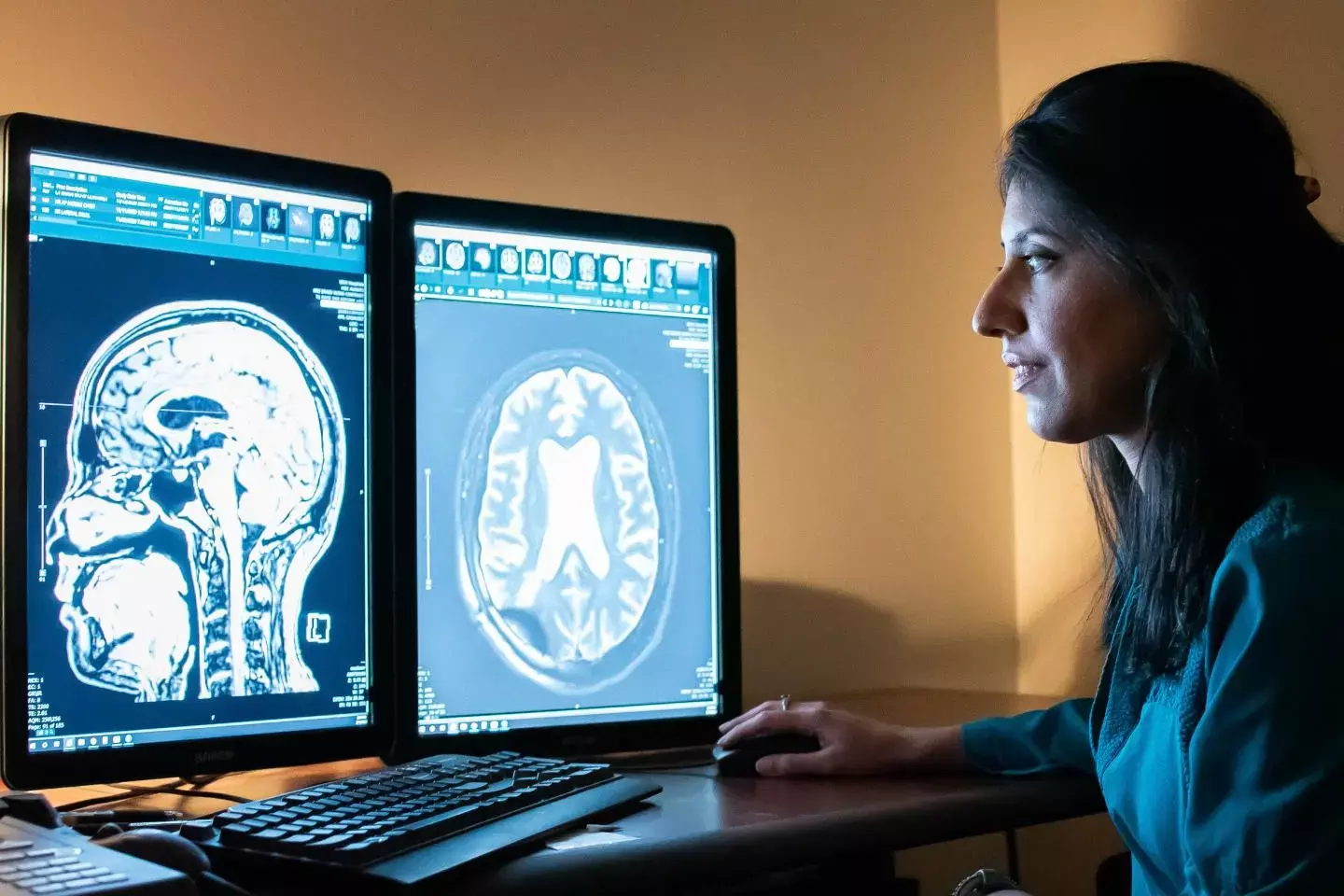- Home
- Medical news & Guidelines
- Anesthesiology
- Cardiology and CTVS
- Critical Care
- Dentistry
- Dermatology
- Diabetes and Endocrinology
- ENT
- Gastroenterology
- Medicine
- Nephrology
- Neurology
- Obstretics-Gynaecology
- Oncology
- Ophthalmology
- Orthopaedics
- Pediatrics-Neonatology
- Psychiatry
- Pulmonology
- Radiology
- Surgery
- Urology
- Laboratory Medicine
- Diet
- Nursing
- Paramedical
- Physiotherapy
- Health news
- Fact Check
- Bone Health Fact Check
- Brain Health Fact Check
- Cancer Related Fact Check
- Child Care Fact Check
- Dental and oral health fact check
- Diabetes and metabolic health fact check
- Diet and Nutrition Fact Check
- Eye and ENT Care Fact Check
- Fitness fact check
- Gut health fact check
- Heart health fact check
- Kidney health fact check
- Medical education fact check
- Men's health fact check
- Respiratory fact check
- Skin and hair care fact check
- Vaccine and Immunization fact check
- Women's health fact check
- AYUSH
- State News
- Andaman and Nicobar Islands
- Andhra Pradesh
- Arunachal Pradesh
- Assam
- Bihar
- Chandigarh
- Chattisgarh
- Dadra and Nagar Haveli
- Daman and Diu
- Delhi
- Goa
- Gujarat
- Haryana
- Himachal Pradesh
- Jammu & Kashmir
- Jharkhand
- Karnataka
- Kerala
- Ladakh
- Lakshadweep
- Madhya Pradesh
- Maharashtra
- Manipur
- Meghalaya
- Mizoram
- Nagaland
- Odisha
- Puducherry
- Punjab
- Rajasthan
- Sikkim
- Tamil Nadu
- Telangana
- Tripura
- Uttar Pradesh
- Uttrakhand
- West Bengal
- Medical Education
- Industry
Cardiac arrest survivors at increased risk of neurologic and psychiatric events: JAMA

Chandigarh’s PGI Builds India’s Largest Unified Neurology and Neurosurgery Facility
CREDIT
Caylie Silveria/West Virginia University
Denmark: A new study conducted by Niels Secher and team showed that when compared to patients with myocardial infarction and the general population, individuals discharged after cardiac arrest had a higher incidence of future stroke, dementia, epilepsy, depression, and anxiety, with falling rates over time. The findings of this study were published in the Journal of American Medical Association (JAMA).
Long-term neurologic and behavioral hazards following cardiac arrest are mainly unknown. As a result, the purpose of this study was to look at the short-term and long-term risks of common neurologic events (stroke, Parkinson's disease, epilepsy, and dementia) as well as mental outcomes (depression and anxiety) in patients who had been hospitalized for cardiac arrest.
Between January 1, 1996, and December 31, 2016, 250 838 people from all Danish hospitals were enrolled in this countrywide population-based cohort research with a 21-year follow-up. All patients with a first-time diagnosis of cardiac arrest and two matched comparator cohorts were identified using Danish medical registries.
Patients with a first-time diagnosis of myocardial infarction were included in the first comparative cohort, whereas those from the general community were included in the second. The data was analyzed between November 1, 2020, and June 30, 2021. Medical registries were used to determine neurologic and mental outcomes following hospital release. Based on Cox regression analysis, 21–year hazard ratios (HRs) and 95 percent confidence intervals (CIs) were calculated, controlling for matching variables and adjusting for comorbidities and socioeconomic status.
The key findings of this study were as follows:
1. There were three categories found among the 250 838 persons involved in this study: 12 046 patients with cardiac arrest, 118 332 patients with myocardial infarction, and 120 460 people from the general population.
2. Patients with cardiac arrest exhibited an elevated incidence of ischemic and hemorrhagic stroke in the first year following discharge when compared to patients with myocardial infarction.
3. During the whole follow-up period, the rates for epilepsy were 28 per 1000 people, 73 per 1000 people for dementia, 270 per 1000 people for mood disorders including depression, and 187 per 1000 people for anxiety.
4. The prevalence of Parkinson's disease was comparable in the two cohorts.
5. The incidence of the aforementioned outcomes was greatest in the first year following cardiac arrest and subsequently gradually decreased.
6. In comparison between the cardiac arrest cohort and the general population cohort, the cardiac arrest group had a greater incidence of epilepsy, dementia, depression, and anxiety.
In conclusion, these findings point to the importance of preventative interventions and thorough monitoring of cardiac arrest survivors.
Reference:
Secher, N., Adelborg, K., Szentkúti, P., Christiansen, C. F., Granfeldt, A., Henderson, V. W., & Sørensen, H. T. (2022). Evaluation of Neurologic and Psychiatric Outcomes After Hospital Discharge Among Adult Survivors of Cardiac Arrest. In JAMA Network Open (Vol. 5, Issue 5, p. e2213546). American Medical Association (AMA). https://doi.org/10.1001/jamanetworkopen.2022.13546
Neuroscience Masters graduate
Jacinthlyn Sylvia, a Neuroscience Master's graduate from Chennai has worked extensively in deciphering the neurobiology of cognition and motor control in aging. She also has spread-out exposure to Neurosurgery from her Bachelor’s. She is currently involved in active Neuro-Oncology research. She is an upcoming neuroscientist with a fiery passion for writing. Her news cover at Medical Dialogues feature recent discoveries and updates from the healthcare and biomedical research fields. She can be reached at editorial@medicaldialogues.in
Dr Kamal Kant Kohli-MBBS, DTCD- a chest specialist with more than 30 years of practice and a flair for writing clinical articles, Dr Kamal Kant Kohli joined Medical Dialogues as a Chief Editor of Medical News. Besides writing articles, as an editor, he proofreads and verifies all the medical content published on Medical Dialogues including those coming from journals, studies,medical conferences,guidelines etc. Email: drkohli@medicaldialogues.in. Contact no. 011-43720751


